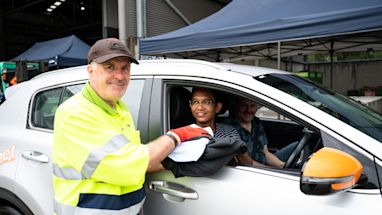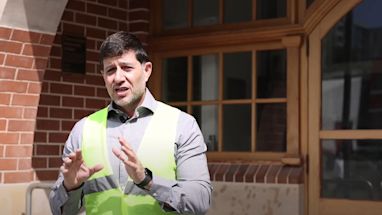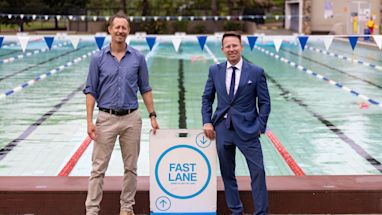For the first time in NSW, black soldier fly larvae or maggots are turning residential food scraps into protein-rich animal feed and fertiliser.
The City of Sydney and smart tech innovator Goterra have joined forces in a 12-month trial to process up to 500 tonnes of food scraps collected in our recycling service.
“This is the next step in our war against waste. Using maggots is an innovative and sustainable solution for this growing problem,” Lord Mayor of Sydney, Clover Moore AO said.

The trial started in January at a purpose-built processing facility in Alexandria.
Food scraps make up around 40% of the waste in red lid rubbish bins. When food waste reaches landfill, the organic material decomposes and releases methane, one of the most potent greenhouse gases on the planet. This trial provides a sustainable and circular solution to processing the growing waste problem.
How the food scraps will be processed
Food scraps are collected and transported to the processing facility, where they’ll be fed to black soldier fly larvae. By transporting it locally, we’ll greatly reduce emissions and fuel costs.

These larvae can eat twice their own body weight every day. Their manure is processed into fertiliser and the maggots themselves become protein-rich animal feed, high in vitamins and minerals. Larvae protein can feed fish, chickens and be turned into pet food, replacing high-carbon sources such as soy and animal products.
“This is a brilliant circular economy result as we regenerate what was once considered waste into sustainable commodities: insect protein for animal feed and a natural low-impact fertiliser, both essential for food production,” the Lord Mayor said.

Unlike other insects, the black soldier fly doesn’t carry or spread disease and its larvae breaks down bacteria in the food scraps they eat.
Get involved
More than 22,500 households have access to our food scraps recycling service.
If you live in an apartment building, you can register your interest to join the service. There are no spaces available for houses or terraces but you can be placed on the waitlist.
Published 21 June 2024, updated 7 May 2025


